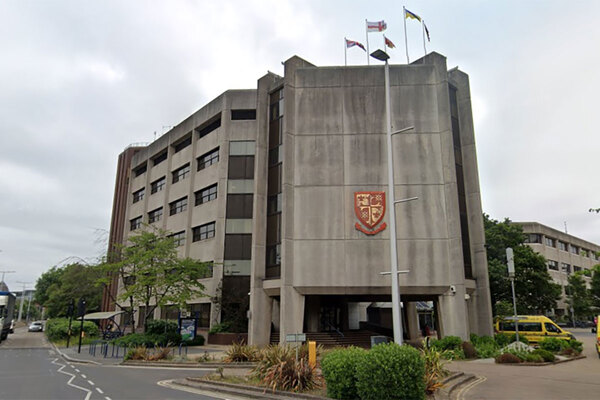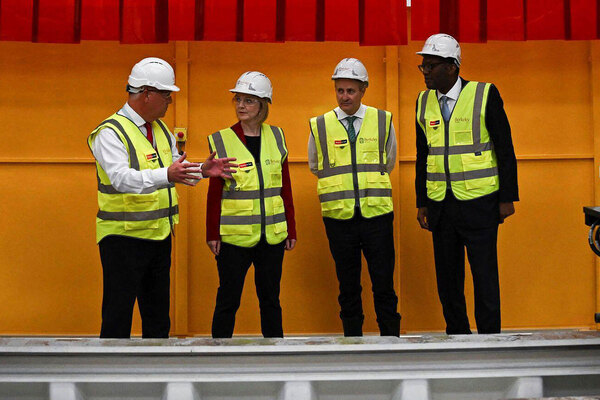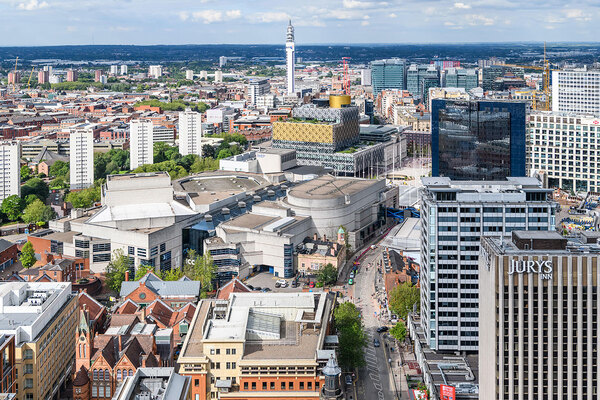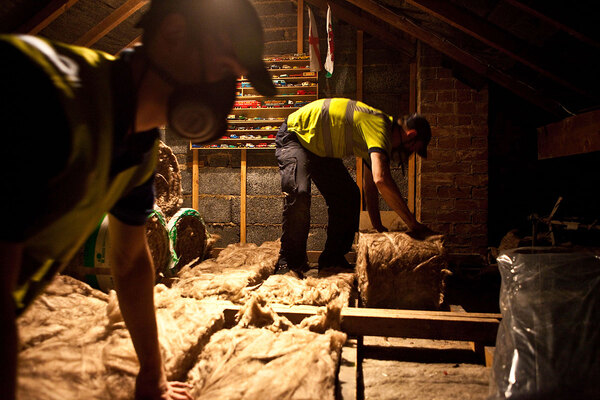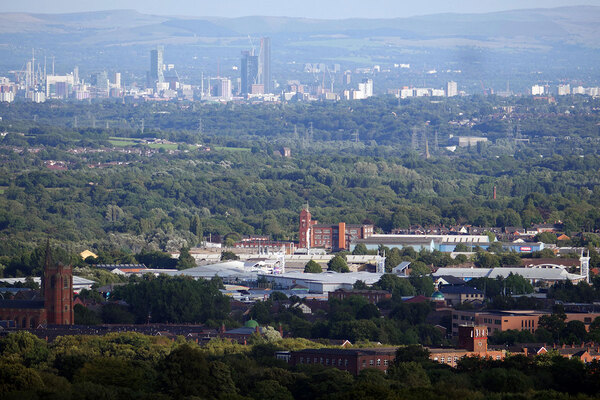Five major benefits of scrapping VAT on home refurbs and retrofits
By charging more VAT on refurbishments and retrofitting than on new builds, our tax system discourages retrofit, writes Richard Ellis, director of sustainability at Peabody
Climate change and high living costs are two pressing challenges for the UK. To achieve net zero by 2050, we need to transform our existing buildings, which emit a fifth of our greenhouse gases. But our tax system discourages this by charging more VAT on refurbishments and retrofitting than on new builds.
At the same time, millions of people are struggling to pay their energy bills, living in homes that need urgent improvement. The Spring Budget is an opportunity for the chancellor to help by abolishing VAT on all home improvements and associated costs for the not-for-profit sector. Here are five reasons why this would be a smart move.
1. An economic boost
Zero-rated VAT on all refurbishments and retrofits would boost demand for materials and workers, fostering a consistent ‘order book’ with lasting benefits. Retrofit schemes hold substantial economic potential. Our ‘heritage and carbon’ report from last year, with partners including Historic England and the Crown Estate, found that improving energy efficiency in older buildings could generate £35bn annually while cutting emissions.
A robust, long-term supply chain would also create jobs and incentivise building contractors to invest in skills – vital given the shortages exacerbated by COVID, Brexit and an ageing construction workforce. Up to 105,000 new workers yearly will be required until 2050, for upgrading pre-1919 buildings alone.
2. Net zero
Buildings in London are responsible for 68% of the city’s carbon emissions, according to recent estimates. Many buildings in the capital and beyond need to be retrofitted with better insulation, heating and smart energy systems to reduce their environmental impact. The government has set a target for the social housing sector to achieve Energy Performance Certificate Band C for all its homes by 2030, as a step towards net zero carbon by 2050. But this is not enough.
Housing associations like us must speed up our retrofit activity if we’re going to get to net zero carbon by the middle of the century. Removing VAT on retrofits and refurbs would lower the cost of improvement works – benefitting homes and the environment sooner.
3. Warmer, cheaper homes
According to the National Housing Federation, 3.26 million households in England faced fuel poverty in 2022. Many of them live in homes that lack proper insulation and use gas and oil heating systems.
We know how much difference it makes to people’s lives to upgrade their homes. Residents become warmer, more comfortable and they save money on their fuel bills. And their homes are less likely to develop damp and mould.
Making refurbs and retrofits VAT free would help us deliver better homes for our residents faster – enhancing well-being, reducing health inequalities and easing the burden on the NHS. And it would free up capacity to invest more in homes, services and projects that benefit residents and communities.
4. Level the playing field
New build projects are zero-rated for VAT, while most refurbishments and retrofits are still subject to the standard rate of 20%. This creates a perverse incentive to demolish existing buildings and replace them with new ones, rather than preserving and enhancing them.
New builds of course have a vital part to play in tackling the chronic housing shortage. But removing VAT from refurbishments and retrofits would level the playing field, making the refurbishment/retrofit route far more attractive. We’d see fewer carbon emissions associated with demolishing and building, and we’d be helping to retain the character and heritage of our towns and cities.
According to a report published earlier this month, the London Assembly’s planning and regeneration committee supports a trend of discouraging demolition.
5. Make it easier to go green
The government’s efforts to support energy efficiency in social housing – such as the Social Housing Decarbonisation Fund that is helping us upgrade around 6,500 homes – are of course welcome.
But we also face many challenges in navigating the various ‘green’ schemes that are available, such as the Boiler Upgrade Scheme, the Sustainable Warmth Competition and zero-rated VAT on some energy-efficient products. These schemes often require us to compete with other organisations for limited funding and to carry out retrofit works on a project-by-project basis, which is not very efficient or strategic.
And we’re granted funding on the proviso we spend it by a certain date, which isn’t always easy on the more complex estates where we need more time to plan the job. A simpler and more effective solution would be to make all refurbishments and retrofits VAT free, removing the barriers and complexities in the current funding and policy landscape.
This would provide a strong incentive for the sector to invest more in energy efficiency, and support long-term planning. We’d welcome the chancellor going further still and scrapping VAT on all routine maintenance, and for any adaptions that protect buildings from climate change – such as shutters and sustainable urban drainage systems.
The benefits of removing VAT from refurbishments and retrofitting of homes are clear and compelling – environmentally, economically and socially. It’s a win-win policy that needs to form a key part of the next government’s green recovery plan. And the Spring Budget is a golden opportunity for the chancellor to act now and bring these benefits forward.
Richard Ellis, director of sustainability, Peabody
Sign up for our asset management newsletter
Already have an account? Click here to manage your newsletters








